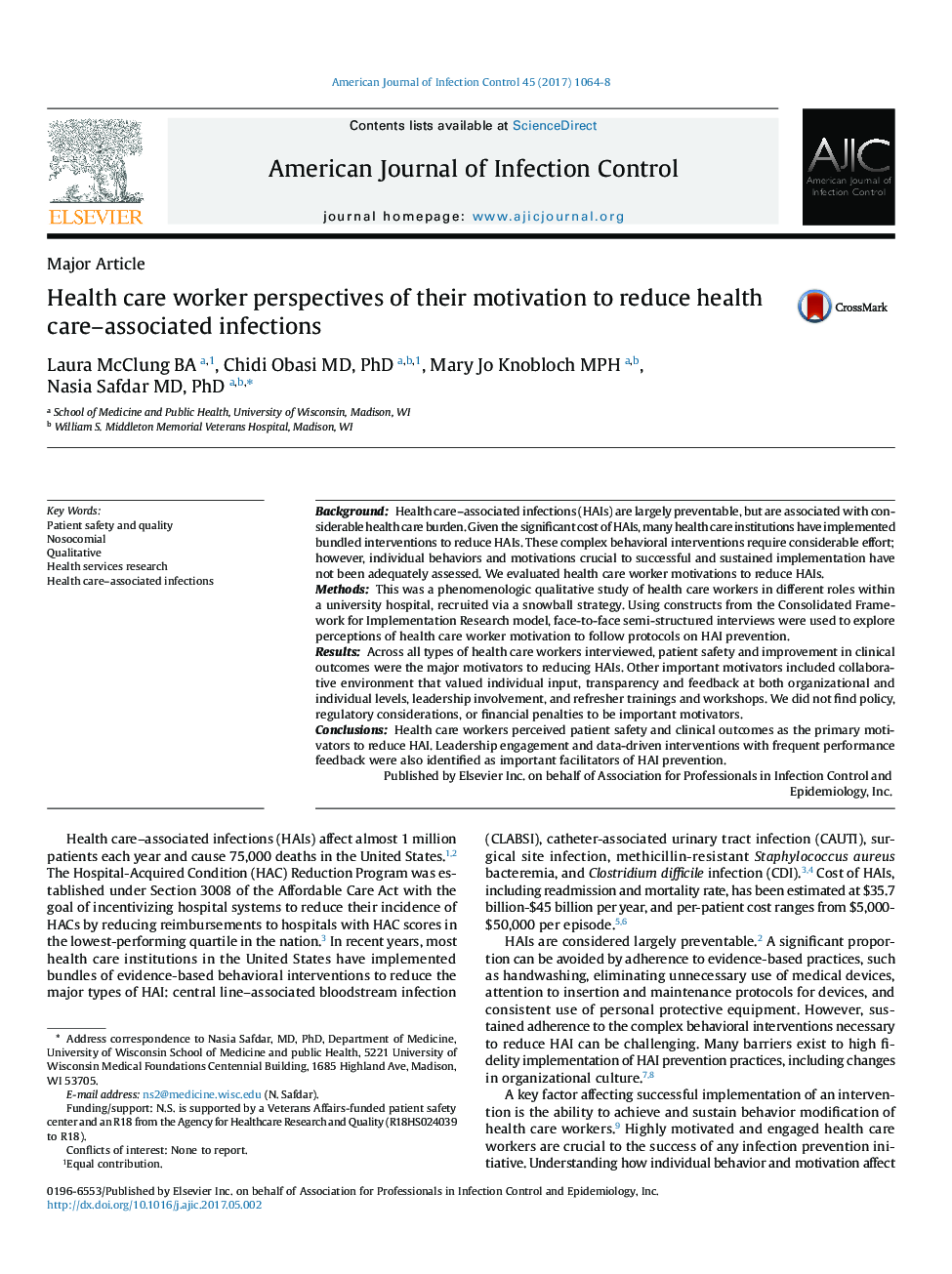| Article ID | Journal | Published Year | Pages | File Type |
|---|---|---|---|---|
| 5566166 | American Journal of Infection Control | 2017 | 5 Pages |
BackgroundHealth care-associated infections (HAIs) are largely preventable, but are associated with considerable health care burden. Given the significant cost of HAIs, many health care institutions have implemented bundled interventions to reduce HAIs. These complex behavioral interventions require considerable effort; however, individual behaviors and motivations crucial to successful and sustained implementation have not been adequately assessed. We evaluated health care worker motivations to reduce HAIs.MethodsThis was a phenomenologic qualitative study of health care workers in different roles within a university hospital, recruited via a snowball strategy. Using constructs from the Consolidated Framework for Implementation Research model, face-to-face semi-structured interviews were used to explore perceptions of health care worker motivation to follow protocols on HAI prevention.ResultsAcross all types of health care workers interviewed, patient safety and improvement in clinical outcomes were the major motivators to reducing HAIs. Other important motivators included collaborative environment that valued individual input, transparency and feedback at both organizational and individual levels, leadership involvement, and refresher trainings and workshops. We did not find policy, regulatory considerations, or financial penalties to be important motivators.ConclusionsHealth care workers perceived patient safety and clinical outcomes as the primary motivators to reduce HAI. Leadership engagement and data-driven interventions with frequent performance feedback were also identified as important facilitators of HAI prevention.
